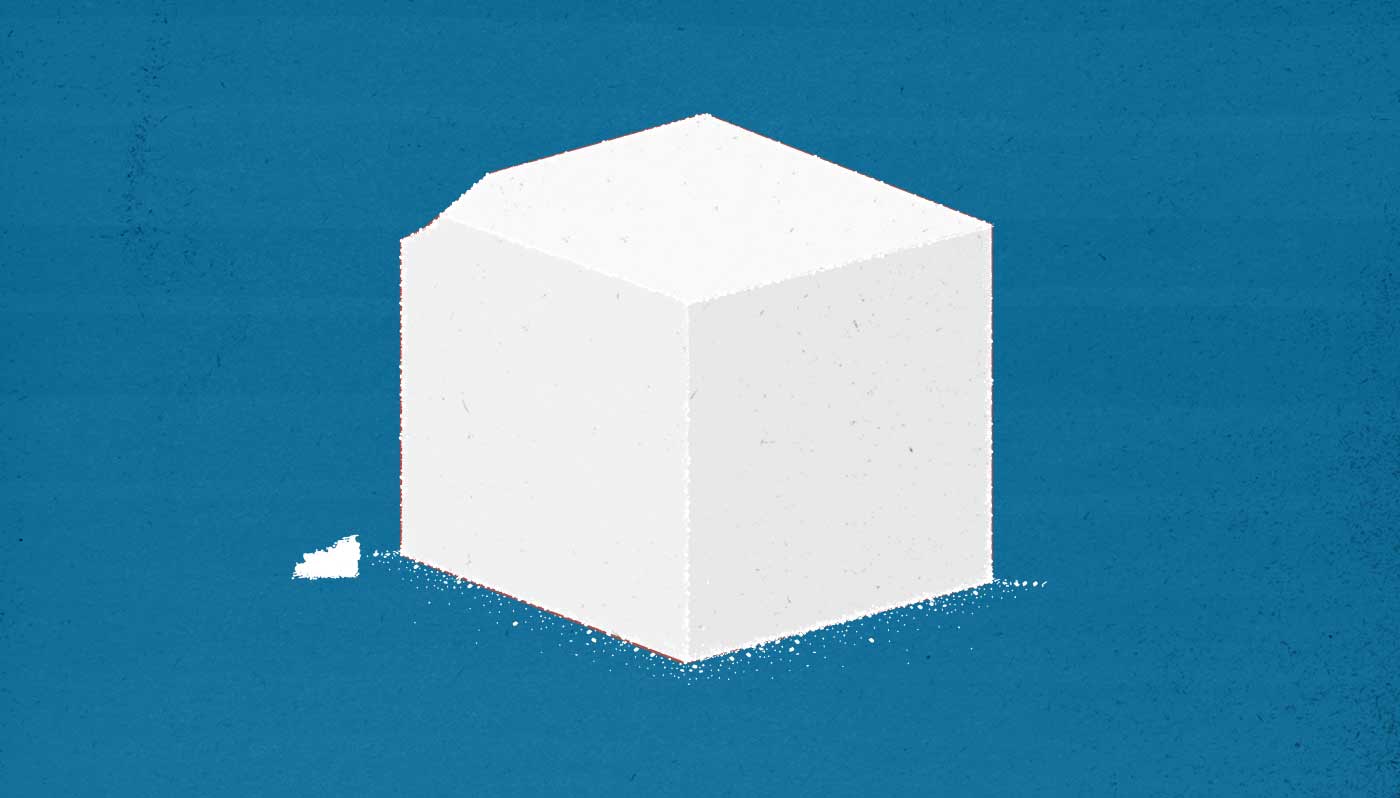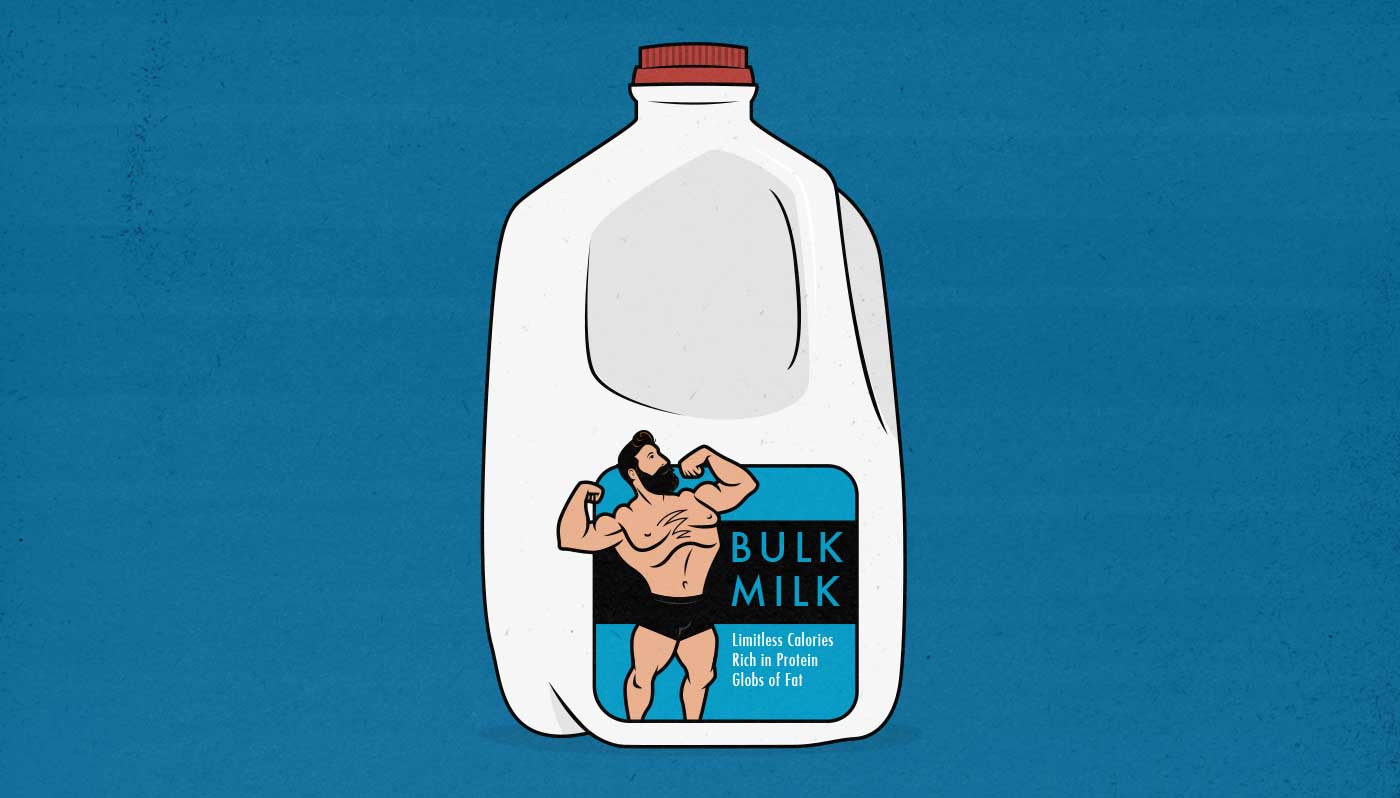Longterm Health
How Much Sugar is Okay While Bulking?
Sugar is often criticized for causing weight gain. It’s technically a calorie surplus that causes the weight gain. But sugar can certainly make it easier to get into a calorie surplus, and so increasing our sugar intake can indeed lead to weight gain.
What if we’re trying to gain weight? For a lot of us hardgainers, the idea of sugar causing accidental weight gain sounds like a potential benefit, and it can be. In fact, when Marco first started helping me bulk up, one of the first things he did was have me add some sugar (dextrose) into my workout shakes. It’s a common trick that strength coaches use with high-level athletes to help them get into a calorie surplus. Marco cut his teeth by helping college, professional, and Olympic athletes build muscle, so it was the first thing he thought of when I told him that I was having trouble gaining weight.
Look at drinks like Gatorade, designed for the Gators from the University of Florida to keep them fueled up while playing sports. It’s full of sugar. Or look at the recovery drinks we see at the supplement stores. Again, full of sugar (or starch). The same is true with weight gainers. Their main ingredient is usually either maltodextrin or dextrose—both of which are quickly broken down into sugar as soon as we drink them. Sugar is the main ingredient in bulking supplements and sports drinks.
In the general public, though, most skinny guys take the opposite approach. They’ve heard that processed sugar will raise our blood sugar levels and can lead to various health issues, including, of course, fat gain. So when they start bulking up, they intentionally try to reduce their intake of processed sugar. Now, there’s certainly no problem with that, and most health experts recommend keeping our sugar intake quite low anyway—often limiting sugar to 25% of our total calories but sometimes as low as 10% of our total calories (study).
However, the idea of limiting our sugar intake to 25% of our calories is based on the idea that eating more processed sugar can lead to nutrient deficiencies. If we eat more candy, that can mean eating fewer fruits and veggies. But that’s not all that relevant to us skinny guys who are intentionally driving ourselves into a calorie surplus to build muscle. It’s especially irrelevant if we’re getting that added sugar from sources that are rich in micronutrients, such as from fruit, fruit juice, honey, and milk. In that case, even though our sugar intake would be increasing, we’d be consuming more micronutrients.
Furthermore, sugar has a different impact on skinny guys who are underweight and exercising than it does on people who are overweight and sedentary. We don’t have the same issues controlling our blood sugar levels, removing most of the downsides to our general health. And, when combined with a good lifting routine, raising our intakes of sugar can lead to leaner muscle gains than increasing our intakes of fat.
So, what effect does sugar have on skinny guys as we bulk up? How much added sugar is helpful. How much is harmful? And how can we make it easier to bulk up quickly and leanly?
Read MoreThe Skinny Guy’s Guide to Natural Testosterone Production
This is a guest post written by Dr. Robin Bhavsar, a physician with a specialization in urology (the field of medicine concerned with testosterone). He works at St. Joseph Health. You can see his credentials here.
After bulking up with our Bony to Beastly Program, he wrote a guide in our coaching community that became immensely popular with our members. He also answered many of their questions, including ones like:
- Does being skinny mean I have low testosterone?
- Am I skinny-fat because I have low testosterone?
- How can I increase my natural testosterone production?
In this article, Dr. Bhavsar will explain everything a skinny guy should know about their own natural testosterone production.
Read the ArticleHow to Maintain Your Muscle Mass Without Lifting Weights
Imagine being in the midst of a bulking routine, and things are going super well—you’re gaining weight on the scale each week, steadily building muscle. But then, lo and behold, disaster strikes. And not just a run of the mill muscle disaster, like running out of trail mix, but the worst kind of disaster imaginable: a vacation.
And I’m not talking about one of those cushy vacations at a resort that includes a gym, I’m talking about one of those vacations where we’re forced to stop lifting weights entirely.
For many of us, even just the thought of taking a break from our workout routines gets our hearts racing, our minds spiralling down into the depths of pure terror. Unfortunately, I’ve been there too. I know what you’re thinking:
- How much muscle will you lose if you don’t go to the gym for a week or two?
- Can you build muscle with bodyweight workouts?
- How many mojitos does it take to spike muscle protein synthesis?
- Why don’t they make luggage big enough to fit a barbell?
- Will the customs agent see whey protein but think you’re trafficking drugs?
- Will you be able to build muscle in prison?
In desperation, you might start googling around to learn more, but since only 3% of the population is trying to gain weight, good luck trying to find an article for people who are worried about losing weight when they stop working out.
So what do you do? Cancel your vacation? Do bodyweight workouts? Or take a break from lifting?
Read MoreShould Skinny Guys Use Milk to Bulk Up? (GOMAD)
If you’re a naturally skinny guy who’s been having trouble bulking up, milk can often help. There’s a simple reason for that: by drinking more milk, you’ll be adding more calories and protein into your diet. Milk is also a rich source of nutrients that are helpful for guys who are trying to build muscle. Finally, milk is extremely easy on the appetite, making it easier for us ectomorphs to gain weight.
However, if you add too much milk into your diet, then you may find yourself gaining quite a bit of fat along with your muscle (study). Worse, since whole milk is so high in saturated fat, going overboard with it can cause you to store proportionally more visceral fat, which can negatively impact your longterm health (study). That’s why GOMAD, where you drink a gallon of whole milk every day, is so infamous for making guys fat.
You could avoid some of those problems by choosing low-fat milk, yes, but higher-fat milk has some unique muscle-building properties that you might want to take advantage of.
So, what’s the best way to bulk up with milk?
Read More



